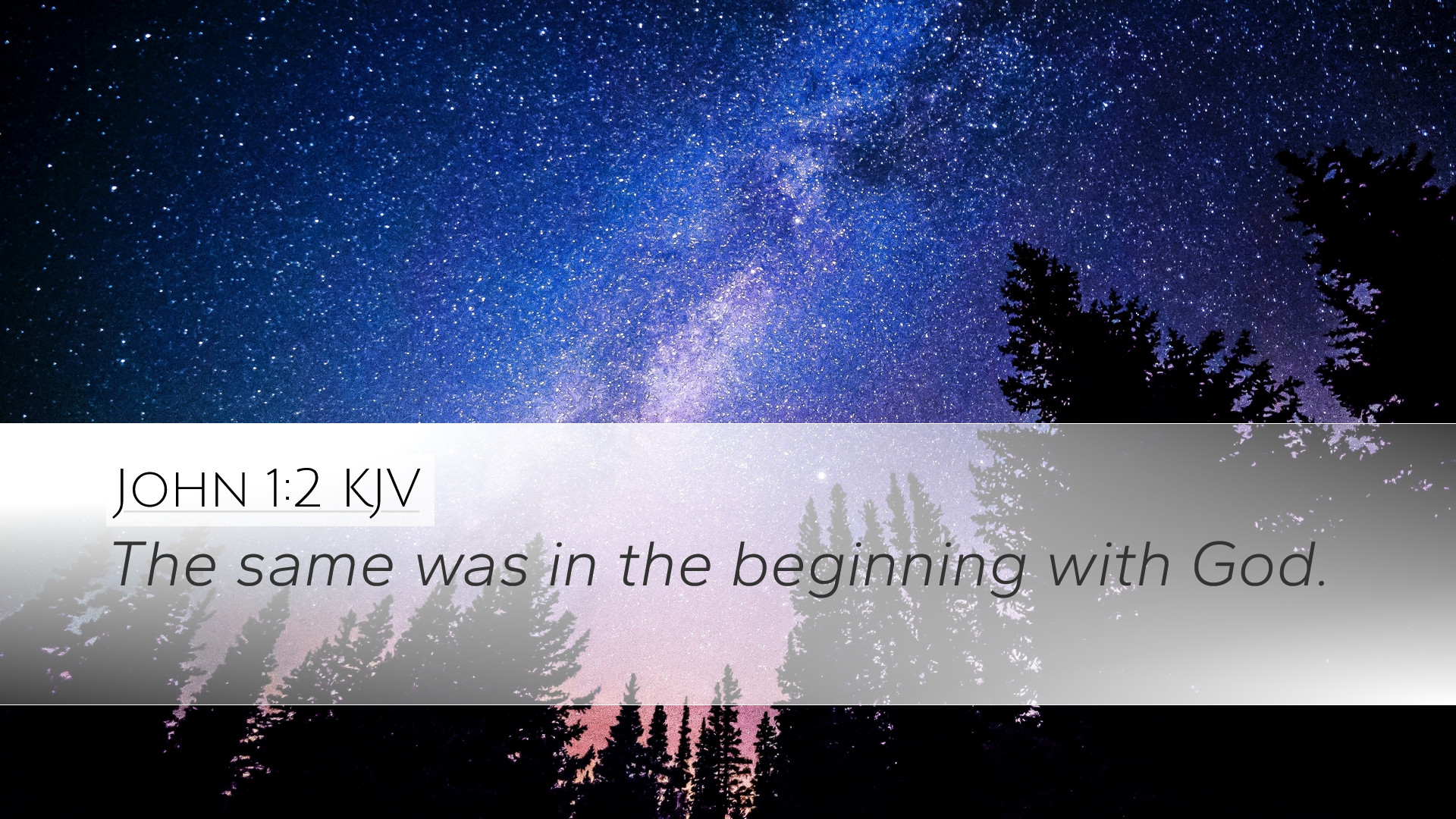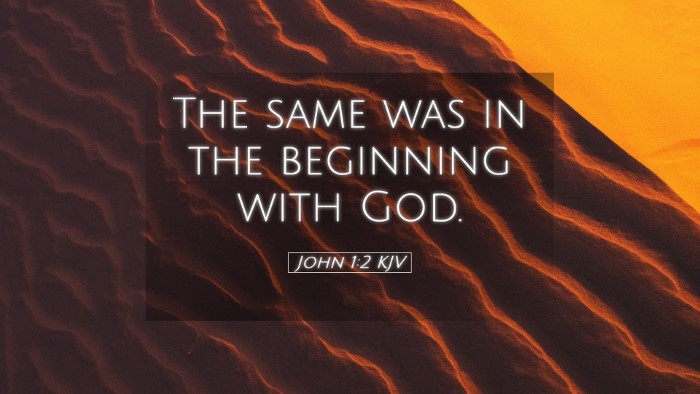Commentary on John 1:2
Verse Text: "The same was in the beginning with God."
This verse is a continuation of the profound introduction to the Gospel of John and encapsulates foundational theological truths about the nature of Christ and His relationship to God.
Understanding the Context
The first chapter of John sets the stage for a deeper understanding of Jesus Christ’s identity. John is establishing the pre-existence of Christ as not only being with God but also as God Himself. This verse directly connects us to the opening of Genesis and establishes continuity between the Old and New Testaments.
Theological Implications
This verse carries significant implications for Christology (the study of the nature and work of Christ). Here, we see the declaration of Jesus' eternal nature.
- Pre-existence of Christ: John emphasizes that the Word (Logos) existed before creation, implying that Jesus is not a created being but rather divine and co-existent with God.
- Relationship with God: The phrase “with God” indicates an intimate relationship, suggesting a unity and distinction within the Godhead.
- Foundation for the doctrine of the Trinity: The verse reinforces the understanding of the Trinity, indicating that Jesus, the Son, has eternally existed alongside God the Father.
Commentary Insights
From Matthew Henry
Matthew Henry sees this verse as pivotal in establishing the eternality and divinity of Jesus Christ. He draws attention to the fact that the “same” not only refers to Jesus but signifies the consistency of God’s purpose throughout history. Henry emphasizes that in Jesus, we have the full revelation of God’s will and character.
From Albert Barnes
Albert Barnes notes that this verse serves to prevent any misconception about the nature of Christ. He argues that stating “the same was in the beginning” affirms that Jesus is actively involved in creation and God's overarching plan. Barnes outlines that this verse reassures believers of Christ’s foundational role in God’s divine order.
From Adam Clarke
Adam Clarke’s insights point to a deep examination of the Greek terminology used in the text. He explains that the term translated as “with” indicates a close and personal relationship. Clarke emphasizes that this proximity to God is indicative of the absolute unity and harmony between Jesus and the Father, making Him the sole mediator between humanity and God.
Exegesis of Key Terms
- "The same": This refers directly back to the “Word” mentioned in John 1:1, highlighting the unchangeable nature of Christ.
- "In the beginning": A reference that echoes Genesis 1:1, asserting that Christ’s existence is not bound by time.
- "With God": This phrase denotes a face-to-face relationship, suggesting intimacy and mutual support within the Trinity.
Application for Today
This verse invites contemporary believers to explore the depth of their faith in Christ as the eternal Word, co-existent with the Father in the creation and redemption narrative.
- Encouraging Worship: Understanding Jesus’ divine nature should lead to greater reverence and worship among believers.
- Strengthening Faith: This verse serves as a bolstering reminder of the unshakeable foundation of faith rooted in the eternal existence of Christ.
- Modeling Relationships: The intimacy observed in the relationship between Jesus and the Father calls Christians to prioritize their relationship with God.
Conclusion
In summary, John 1:2 stands as a critical declaration of the pre-existence and divinity of Christ. Through insights from classical commentaries, we gain a richer understanding of the foundational truths that not only affirm the nature of Jesus but inspire believers in their faith journey today. Each commentary adds a layer of understanding that reveals the depth of this concise yet profound verse, making it essential for pastors, students, theologians, and Bible scholars alike.


